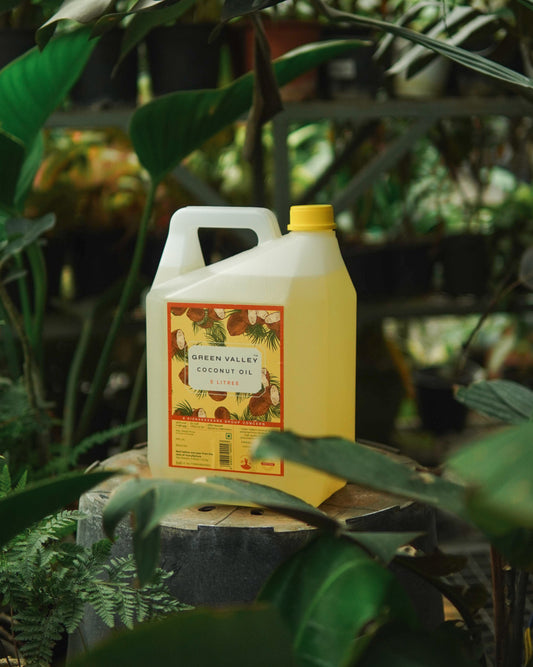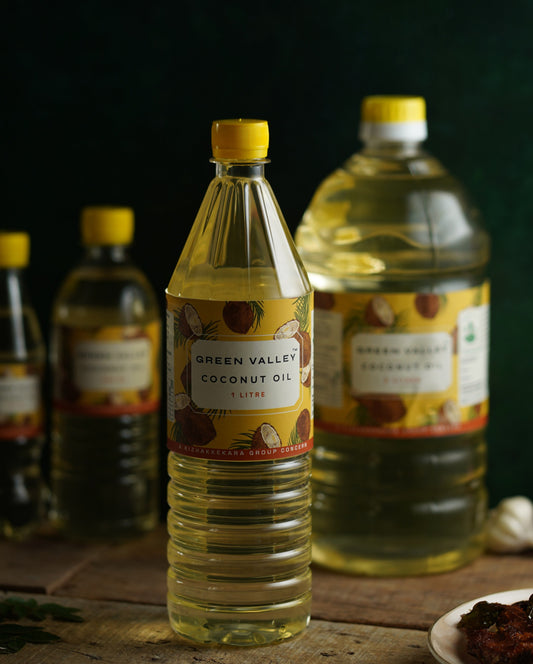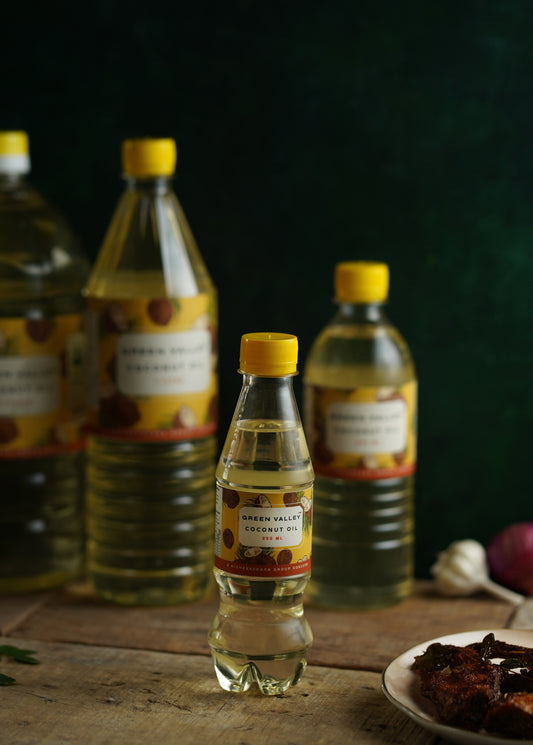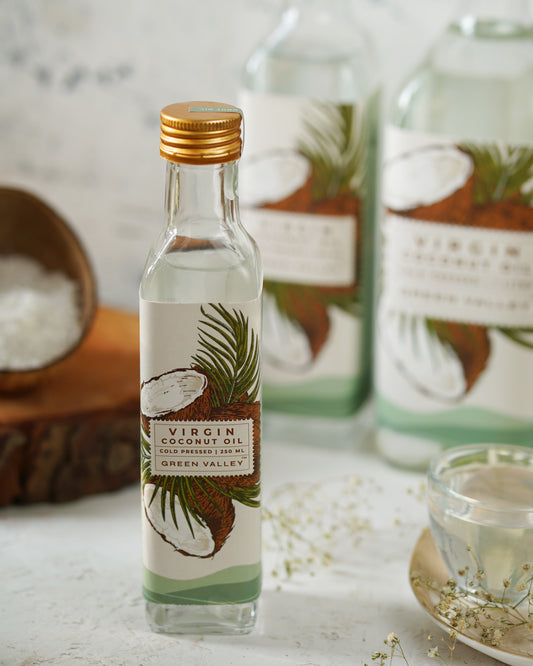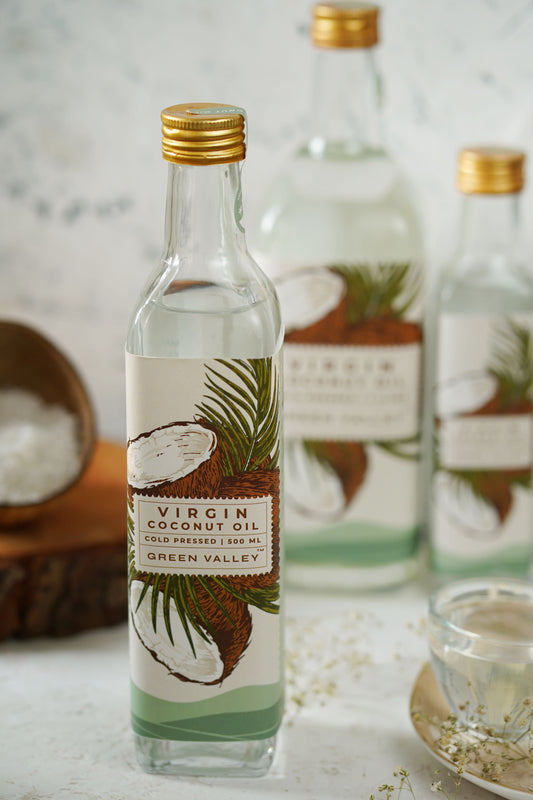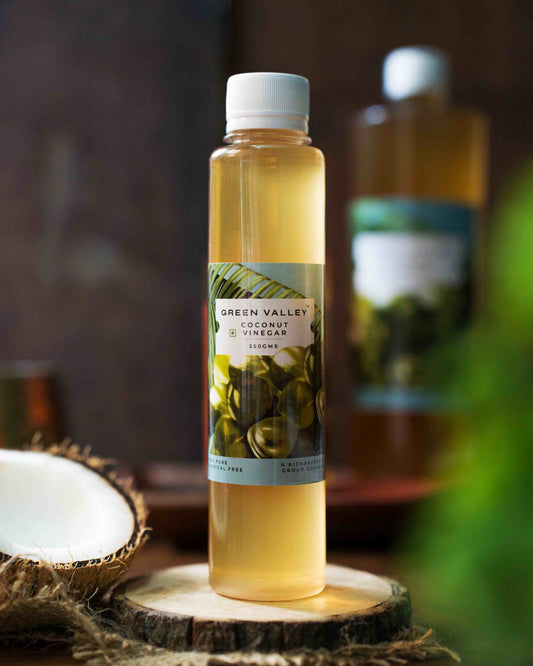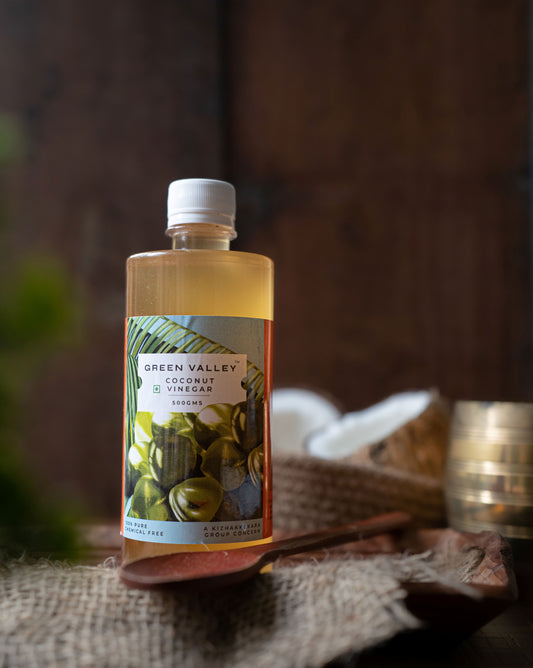We have seen it all, from ramen for quick fixes and nail clippers on garlic shells, the internet hacks are wild! While most are simply made for a laugh or the gullible, some have actually turned out to be life-changing - even though they sound completely made up.
And sitting at the top of that list is vinegar on hair. Yes, WILD!!
But when it comes to hair and skin, it has been proven over the years of the existence of the internet that people are willing to try ANYTHING that will give them shiny, soft, silky hair and glowing skin. We can’t blame them, the online content creators have perfected the art of making anything sound 110% believable, and what if it happens to be true and you wake up looking flawless the next day?
Jumping at all opportunities is the key to achievement, or so it goes. But before that, a fact check might do you well. The tales of how vinegar has been an age-old ingredient for home DIY are widespread. But the question remains - can you safely apply vinegar to your hair, and does it really deliver on its promises? Let’s comb through the facts to find out.
What Kind Of Vinegar Are We Talking About?
Before you start pouring just any vinegar on your hair, it’s crucial to note that not all vinegars are created equal.
Apple Cider Vinegar (ACV)
The reigning champion of hair care, ACV is often praised for its ability to improve hair health. It’s made from fermented apple juice and contains acetic acid, vitamins, and minerals that are said to benefit both scalp and strands.
Coconut Vinegar
Less common but equally promising, coconut vinegar, made from fermented coconut sap or water, is rich in nutrients like potassium and amino acids. It’s gentler than ACV and can add a tropical touch to your hair care routine.
White Vinegar
While it’s affordable and widely available, white vinegar is harsher compared to ACV or coconut vinegar. It may be too strong for most hair types, especially if used without proper dilution.
What Are the Benefits Of Using Vinegar On Hair?
Applying vinegar to your hair has been touted as a solution to various hair woes. Here’s what it can do:
1. Restores Scalp pH Balance
Healthy hair starts with a healthy scalp. Your scalp’s natural pH hovers around 5, which is slightly acidic. However, hair products and environmental factors can disrupt this balance, making your scalp either too alkaline or too acidic. Vinegar, especially ACV, helps restore the natural pH, creating a balanced environment for your hair to thrive.
2. Removes Product Buildup
If your hair feels heavy or greasy despite regular washing, blame product buildup. Shampoos, conditioners, and styling products can leave residue behind. Vinegar acts as a natural clarifier, stripping away buildup and leaving your hair feeling lighter and cleaner.
3. Adds Shine
The acetic acid in vinegar smoothens the hair cuticle, reflecting light and making your hair appear shinier. Goodbye, dull strands!
4. Reduces Dandruff
Vinegar’s antifungal properties can help combat dandruff, which is often caused by an overgrowth of yeast on the scalp. Regular use may soothe itchiness and flaking.
5. Detangles Hair
The smoothing effect of vinegar makes hair easier to detangle, reducing breakage and making post-wash combing less of a battle.
6. Promotes Hair Growth (Indirectly)
A healthy scalp is key to hair growth. By keeping your scalp clean, balanced, and free from buildup, vinegar creates an environment conducive to growing stronger, healthier hair.
How To Use Vinegar On Hair Safely
The thing about picking ingredients from your kitchen and going on a DIY tour is that you need to have accurate knowledge of how to use them and how not to use them. These are not ready-to-use products like your shampoo or conditioner and you must exercise caution. Go rogue in exploring the wild scientist in yourself with these ingredients and you just might end up bald - unless that is the aim. (There is more than one way to be cast in the next Fast and Furious movie.)
Here’s how to do it the right way:
1. Dilute, Dilute, Dilute!
Vinegar is acidic, and using it undiluted can harm your scalp and hair. A common ratio is 1–2 tablespoons of vinegar to 1 cup of water.
2. Focus on the Scalp
Pour the diluted mixture over your scalp, massaging gently to spread it evenly. Avoid drenching your hair unless you’re clarifying product buildup.
3. Rinse Thoroughly
After applying vinegar, rinse your hair thoroughly with cool or lukewarm water to ensure no residue is left behind.
4. Use It Sparingly
Once a week is sufficient for most hair types. Overuse can strip your hair of natural oils, leading to dryness.
5. Test It First
If you’re new to using vinegar on your hair, perform a patch test to ensure your scalp doesn’t react negatively.
Who Should (and Shouldn’t) Use Vinegar On Hair?
Haircare aficionados, we know that you are picky about the products that go in, on, or near your body. So are vinegars. It’s not made for everyone and only suits a very small range of hair and scalp types.
It is best for:
- Oily Hair and Scalp: Vinegar helps control excess oil production.
- Dull or Lifeless Hair: It restores shine and vibrancy.
- People with Dandruff: Its antifungal properties can provide relief.
- Natural Hair Care Enthusiasts: If you’re looking for a chemical-free alternative to clarify and refresh your hair, vinegar is worth a shot.
It is best to avoid it if:
- You have a sensitive scalp: Vinegar’s acidity might irritate sensitive skin.
- Your hair is extremely dry or brittle: Vinegar can exacerbate dryness.
- You’re allergic to fermented products: Coconut vinegar and ACV are both fermented, so steer clear if you have sensitivities.
Coconut Vinegar vs. Apple Cider Vinegar For Hair
Apple Cider Vinegar (ACV)
It is more widely used and researched for hair care. It is slightly stronger than coconut vinegar, making it better for intense clarifying or oily hair. It contains the “mother,” which is believed to boost its antimicrobial and probiotic properties.
Coconut Vinegar
It is much more gentler than ACV, making it ideal for sensitive scalps or dry hair. Rich in potassium and amino acids, it may help nourish the scalp and leaves a subtle, tropical aroma (if you’re into that).
Verdict: Choose ACV for oily hair and buildup removal, and coconut vinegar for a softer, more hydrating option.
The Risks Of Using Vinegar On Hair
Let’s not gloss over the fact that vinegar can go wrong if used carelessly. Here’s what to watch out for:
- Dryness: Overusing vinegar or failing to dilute it can strip your hair of its natural oils.
- Irritation: Sensitive scalps may experience redness, itching, or a burning sensation.
- Fading Hair Colour: If you have dyed hair, the acidity in vinegar might cause your colour to fade faster.
The Final Rinse
So, is it OK to apply vinegar on hair? Absolutely—when done right. Vinegar, especially ACV and coconut vinegar, can bring balance, shine, and health to your hair. However, moderation and proper application are key to reaping its benefits without causing harm.
Whether you’re looking to banish dandruff, boost shine, or clarify your scalp, vinegar might just be the secret ingredient your hair routine has been missing. So grab a bottle, mix it with water, and let your hair soak in the goodness. Just remember, your hair is a crown—treat it gently!


